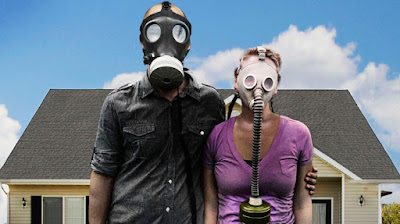Prepping
I was reading a prepper blog the other day and to my surprise the author said that many preppers are slacking off on prepping because the fears they had of collapse are greatly lessened, now that Trump is President Elect. My reaction is the opposite: I'm worried about Trump's easily injured vanity and his impetuousness. I'm also worried that he, in partnership with a Republican Congress, will attempt to put into place policies that will lead many to protest in potentially disruptive ways.
 I have my fears about my own immediate well-being: I now depend on Social Security Disability income and Medicare. If Medicare benefits are reduced, my health would be in serious jeopardy. My daily activity would be severely limited without autoimmune suppressants, and those suckers are absurdly expensive. I also rely on medications to regulate my moods, my heart rate, and my blood pressure. My autonomic nervous system has been effected by previous brain inflammation. If my Social Security is reduced and M remains employed, we could get by shedding some of our non-essential expenses.
I have my fears about my own immediate well-being: I now depend on Social Security Disability income and Medicare. If Medicare benefits are reduced, my health would be in serious jeopardy. My daily activity would be severely limited without autoimmune suppressants, and those suckers are absurdly expensive. I also rely on medications to regulate my moods, my heart rate, and my blood pressure. My autonomic nervous system has been effected by previous brain inflammation. If my Social Security is reduced and M remains employed, we could get by shedding some of our non-essential expenses. But there are many others who would be in worse shape. My mother, for instance, is elderly and disabled and mentally ill. She receives Social Security Retirement Benefits, Public Housing benefits, Medicaid, and subsidized transportation for doctors' visits and grocery trips. She's single and her budget has no leeway--she and most of those who live in the same housing complex (for the elderly and disabled) receive about $500/month in SS Retirement or Disability. If that's reduced and/or she loses some of her other benefits, there will be serious consequences: she'll stop receiving mental health care and medicines, she'll descend into paranoia and delusions and act out in public, and she'll likely end up back on the streets--all of which happened before she began to receive Disability Benefits, Medicaid, and public housing.
I worry that threatened with the loss of these resources, there will be public unrest. My biggest worry is about disruption of the delivery system for food and other essential goods such a gasoline and propane. I worry that this will in turn lead to martial law and rationing.
 |
| Mostly empty shelves |
I'm happy that Mike and I are self-sufficient for some of our basic survival needs, such as electricity and water and sewage disposal. I've written about this before: Living in the D.C. area post Sept. 11 and through the surrounding, unrelated events (blizzard, hurricanes, long term power outages, snipers, anthrax) was a wake up call. Being dependent on the grid and surrounded by hordes of people when the transportation, electricity, sewage disposal, and food supply systems go to shit, even for a few days, is not a good situation to be in.
Since that time, I think about prepping and ask myself how much prepping is reasonable. Given limited financial resources, how much money should we spend for supplies related to prepping? I think it makes sense to invest in things that we would use in any case. For example, we regularly use flour, sugar, brown sugar, rice, corn meal, pasta, beans, and lentils. We also use ibuprofen, aspirin, dish and body soap, toothpaste, antibiotic ointment, and laundry soap. These things won't spoil if we keep more of them around than we'll use in the next week or two. In fact, buying them in bulk once a year is cheaper than buying them from the grocery store every time we need them. And if our income suddenly drops or supplies become scarce or expensive, we can get by for awhile.
 |
| Bucket of beans |
 |
| A few of the solar panels on the roof |
 |
| Firewood |
I worry a bit about when prepping crosses the line into paranoia. But not too much. The choices we've made about where and how to live are compatible with prepping and at the same time, don't require us to make anything I'd consider to be a sacrifice that I wouldn't make for reasons other than prepping. I want to live how and where we do, regardless of whether the shit's hitting the fan or not. Further, these choices are economically reasonable. They help reduce the money we spend on essential goods and services. They're environmentally responsible. We have minimized our consumption of non-replenishable natural resources. And the skills and knowledge and attitudes we've developed are useful for our day-to-day living, and provide a sense of competence and self-confidence.



Comments
Post a Comment